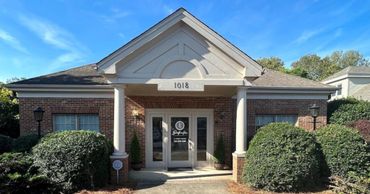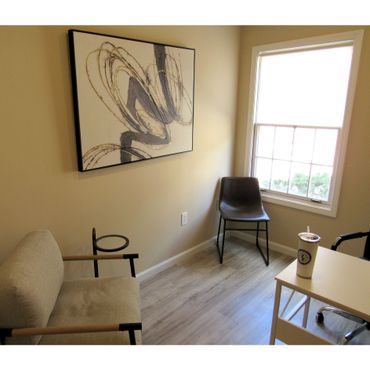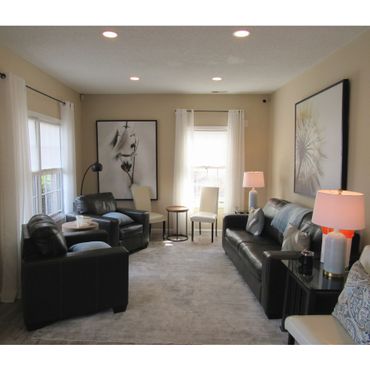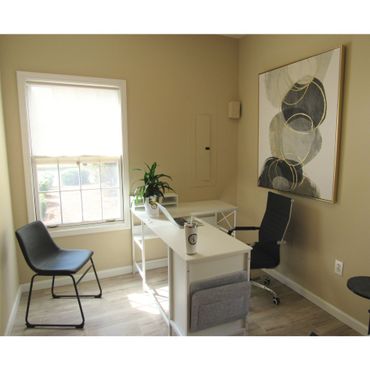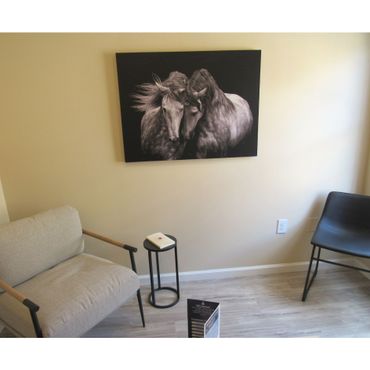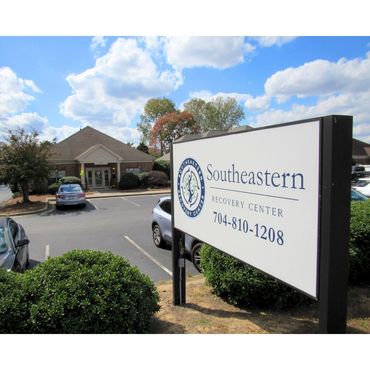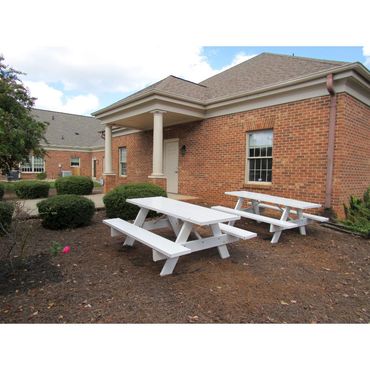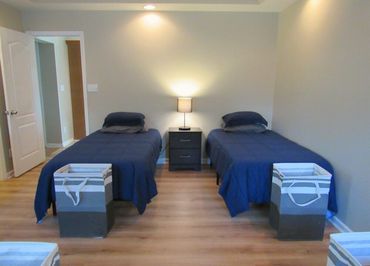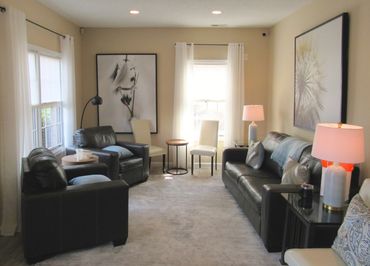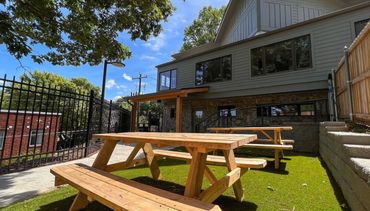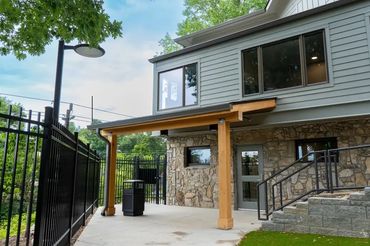
Cognitive Behavioral Therapy (CBT) for Addiction in North Carolina
Find Cognitive Behavioral Therapy (CBT) treatment for addiction in North Carolina. CBT helps treat addiction by identifying triggers, changing harmful thought patterns, building coping skills, and preventing relapse through improved self-awareness and decision-making. Find CBT treatment centers in North Carolina today!
Treatment Centers in North Carolina
Open to Travel? Check out Top-Rated Options
All Treatment Centers in North Carolina
Are You Covered For Treatment?
- Charlotte Rehabs
- Raleigh Rehabs
- Asheville Rehabs
- Greensboro Rehabs
- Fayetteville Rehabs
- Durham Rehabs
- Wilmington Rehabs
- Greenville Rehabs
- Winston Salem Rehabs
- Lumberton Rehabs
Rehab Insurance Coverage in North Carolina
Rehab Centers in North Carolina
Information About Rehab in North Carolina
Latest Reviews
Latest Reviews of Rehabs in North Carolina
UNC Health Care Alcohol and Drug Detoxification Unit at WakeBrook
THE EMERGENCY ROOM WAITING AREA FOR ADMISSION NEEDS TO BE CLEANED AND SANTIZED. IT IS UNACCEPTABLE. THE ENTIRE PROCESS OF SEEING A DOCTOR TOOK 40 HOURS DURING THIS TIME YOU HAVE TO WAIT IN A CHAIR IF YOU ARE NOT LUCKY ENOUGHT TO BE ASSIGNED TO A BED. UNC IS ONE OF THE ONLY HEALTHCARE FACILITIES THAT CAN ASSESS FOR THE MENTALLY ILL TO BE ADMITTED SINCE INSURANCE HAS CLOSED MOST OF THE FACILITIES. THEY DO THE BEST THEY CAN DO UNDER THE CIRCUMSTANCES. WE NEED TO FIGHT FOR FUNDING ON MENTAL HEALTH. CHILDREN ARE AROUND FULL BLOWN ADDICTS DURING THE ADMISSION PROCESS. ALTHOUGH STAFF TRY TO LIMIT WHAT THEY SEE. AFTER THE 2 DAY WAIT IF THERE IS A BED YOU MAY END UP AT UNC IF YOU ARE LUCKY OR YOU WILL HAVE TO GO SOMEPLACE ELSE WITHIN THE STATE THAT IS FAR FROM YOUR HOME. IF YOU HAVE A CHILD YOU WILL HAVE VISIT YOU CHILD LONG DISTANCE. THERE WERE NO FAMILY SUPPORT GROUPS. I WAS INVITED TO A GROUP BUT IT WAS OPEN WITH OTHER CHILDREN. DURING ADMISSION YOUR KID MAY END UP IN A REAL PADDED ROOM WITH A TV BEHIND A SCREEN AND CLOSE QUARTERS. THEY ARE MONITORED BY ROOM CAMERA BEFORE THEY ARE ALLOWED TO BE ADMITTED ON THE CHILDRENS FLOOR. AFTER YOU GET ADMITTED ON THE FLOOR IS WHEN TREATMENT FINALLY BEGINS. WHICH IS ALMOST A WEEK AFTER YOU WENT TO THE EMERGENCY ROOM TO SEEK HELP. THEY WILL BE SHIFTED FROM BED TO BED AS STAFF SEES FIT. NO ONE IS IN THE SAME BEDROOM FOR MORE THAN 2 DAYS. MEALS THEY SELECT WHICH I THOUGHT WAS TOO MUCH BURGERS AND FRIES. THE NURSING STAFF IS EXCELLENT AND THE ATTENTION AND DEDICATION TO THE PROGRAM IS AWESOME. THEY HAVE A SCHEDULE THEY FOLLOW WITH TREATMENT OF SELF ESTEEM BUILDING. THERAPY. TALKING WITH THE DOCTOR. GAMES. ETC. MY SON WAS GLAD TO COME HOME BUT ENJOYED HIS TIME THERE. HE SAID HE GOT A LOT OUT OF THE PROGRAM. THE DOCTOR CALLS TO KEEP IN CONTACT AND TO KEEP YOU INFORMED. MY SON SAW THE DOCTOR EVERYDAY. SOMETIMES SEVERAL TIMES A DAY. THEY ALSO REFERRED HIM TO OTHER CLINICS HE NEEDED. DISCHARGE THEY MAKE SURE YOU HAVE FOLLOW UP. THE SOCIAL WORKER IS ACCOMODATING. SHE WORKS HARD TO KEEP YOU INFORMED AND TO MAKE SURE YOU UNDERSTAND DISCHARG. NURSES ALSO MAKE SURE YOU UNDERSTAND TO FOLLOW UP. THE TREATED THE CHILDREN EXCELLENT. I JUST FOUND THE ADMISSION PROCESS TO BE GRUELING AND THE OBSERVATION PROCESS TO STRESSFUL BECAUSE IT SEEMS YOU GET SUFFLED FROM ONE EXTREME TO THE NEXT WHEN YOU HAVE A MENTALLY ILL SICK CHILD TO CARE FOR IN A STRESSFUL SETTING. ONCE YOUR CHILD COMES AND IS MENTALLY ILL THEY ARE NOT ALLOWED TO GO HOME. UNC IS UNDER STRESS BECAUSE THEY AND ONLY A FEW HOSPITALS ACROSS THE STATE CAN ADMIT PATIENTS FOR REHAB CARE. THEY HAVE FEW DOCTORS WORKING. NOT SURE IF IT FOR BUDGET REASONG OR WHAT. HOPE THIS HELPS.
House of Prayer - Alcoholic's Home, Inc.
One of the best experiences of my life, getting to meet The lord Jesus and letting him save my life. Never going back to addiction thanks to this place. Give Jesus a chance.
About North Carolina
North Carolina, located in the southeastern United States, is a state rich in diversity and natural beauty. With a population of over 10 million people,1 it is the ninth-most populous state in the country. The state’s geography is incredibly diverse, ranging from the breathtaking Blue Ridge Mountains in the west to the picturesque coastal plains in the east, offering residents and visitors a variety of outdoor activities and stunning landscapes to explore.
North Carolina is known for its vibrant culture, blending traditional Southern charm with a growing cosmopolitan influence. North Carolina’s cultural heritage is celebrated through its renowned music, including bluegrass and traditional Appalachian folk, as well as its culinary delights, such as delicious barbecue and fresh seafood. With its captivating landscapes, diverse population, and cultural heritage, North Carolina offers a unique and enticing experience for both residents and visitors alike.
Addiction in North Carolina
Addiction is a significant issue in North Carolina and substance abuse is having a profound impact on the lives of many residents. In 2020, there was a 40% increase in drug overdose deaths compared to the previous year, resulting in the loss of nine lives per day, as reported by the North Carolina Department of Health and Human Services.2
Just a year later, in 2021, North Carolina experienced a significant rise in drug overdose fatalities, with a reported total of 3,981 deaths. This alarming statistic translates to an approximate rate of 39.2 deaths per 100,000 residents.3
Addiction Treatment in North Carolina
Individuals seeking addiction treatment in North Carolina have access to a range of options tailored to their needs. These options encompass different levels of care, including detoxification, inpatient treatment, and outpatient programs.
- Detox: Detoxification, commonly known as detox, is the initial stage of treatment where individuals safely and gradually rid their bodies of addictive substances under medical supervision. It focuses on managing withdrawal symptoms and preparing individuals for further treatment.
- Inpatient Treatment: Inpatient treatment involves residential care, where individuals reside in a treatment facility for a specified period. This immersive environment offers intensive therapy, counseling, and 24/7 support, allowing individuals to focus solely on their recovery. Inpatient programs may incorporate various therapeutic approaches such as cognitive-behavioral therapy (CBT), group therapy, and holistic therapies.
- Outpatient Treatment: Outpatient programs provide more flexibility as individuals can live at home while attending treatment sessions. These programs vary in intensity, ranging from partial hospitalization (PHP) where individuals receive intensive treatment during the day, to standard outpatient programs with fewer weekly sessions. Outpatient treatment allows individuals to maintain their daily routines while receiving ongoing support.
Specialized treatment programs are often available within these levels of care, addressing specific needs such as dual diagnosis (co-occurring mental health and substance abuse disorders), trauma-informed care, and gender-specific programs. These specialized programs provide targeted therapies and support tailored to individual circumstances.
For those seeking a higher level of comfort and privacy, luxury rehabs offer upscale amenities and personalized treatment in serene environments. These facilities may provide luxurious accommodations, gourmet meals, spa services, and holistic therapies to enhance the recovery experience. Private rehabs are another option, typically for individuals with insurance coverage or the financial means to self-pay for treatment. These facilities offer comprehensive addiction treatment with a focus on individualized care and often provide a wide range of therapies and services.
To find local rehab options in North Carolina, individuals can use our “Find a Rehab Center” tool. This tool helps individuals locate nearby treatment facilities based on their location, preferred level of care, and specific needs.
How Much Does Rehab Cost?
Most insurance plans offer coverage for addiction treatment services, including detox, inpatient treatment, outpatient programs, and medication-assisted treatment. The extent of coverage may vary depending on the specific insurance plan and the level of care required. To determine the exact coverage and benefits available, it is essential for individuals to contact their insurance provider directly. They can inquire about the specific treatment services covered, any deductibles or co-pays they may be responsible for, and whether pre-authorization or referrals are required.
For individuals without insurance coverage, there are options available as well. State-funded treatment centers, often operated by government agencies or non-profit organizations, provide addiction treatment services to individuals who are uninsured or facing financial hardship. These centers aim to ensure that everyone has access to necessary treatment and support, regardless of their ability to pay. State-funded treatment centers typically offer a range of services, including detoxification, counseling, therapy, and ongoing support.
In-Network Insurance Options
Length of Stay in Rehab
When it comes to addiction treatment, individuals have various options for the duration of their stay in a treatment program. The most common durations include 30-day, 60-day, and 90-day programs.
In addition to these standard durations, long-term rehab is another option available for individuals with more complex needs or those requiring a higher level of care. Long-term rehab programs typically last between six months and two years, depending on individual treatment needs and the specific facility or program enrolled in.
Recovery Starts Today
Finding a drug and alcohol rehab in North Carolina that aligns with your individual needs is crucial for achieving long-lasting recovery. By selecting a treatment program that offers the appropriate level of care, personalized therapies, and support, you increase your chances of attaining lifelong recovery. Whether it’s considering different treatment options, exploring insurance coverage, or reaching out to state-funded resources, taking the time to find the right rehab center can provide the foundation for a transformative journey towards a healthier and fulfilling life free from the grips of addiction.
Sources:
- United States Census Bureau. QuickFacts-North Carolina. July 1, 2022.
- The North Carolina Department of Health and Human Services. North Carolina Reports 40% Increase in Overdose Deaths in 2020 Compared to 2019; NCDHHS Continues Fight Against Overdose Epidemic. March 21. 2022.
- Centers for Disease Control and Prevention. Drug Overdose Mortality by State. 2021.
